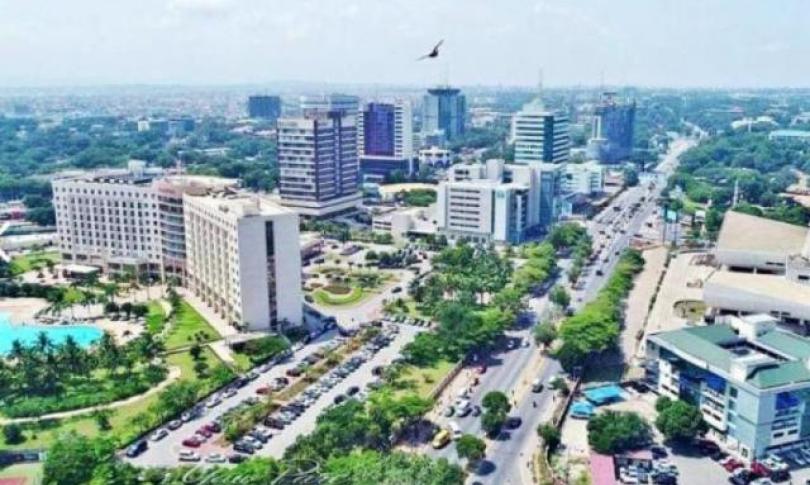
Accra, Ghana- Abigail Nyarko, died at aged-14 after complaining about difficulty in breathing for close to three months. The mother of four, Rosemond Nyarko, is a native of Saltpond but hawks sachet water with Abigail- her second child on the streets of Circle, a suburb of Accra Ghana’s capital.
“For about three months, she complained about chest pain and difficulty breathing at night. I got some medications for her but on that fateful night she struggles to breathe and I rushed her to clinic but she died upon arrival”
I was told by the doctor to stop hawking with the kids, but that’s what I feed my children with, Rosemond narrates with tears flowing from her eyes
Abigail might be a part of the 1,790 deaths recorded by Ghana due to air pollution. Air pollution is one of the most pressing concerns in Accra, recording an annual average of PM2.5 concentration according to experts.
In a recent health and climate change urban profile released by the World Health Organization (WHO) on Accra, the critical climate hazards and health risks faced by the city's residents, in 2016 alone shows the city recorded an alarming average concentration of 55 µg/m3 - over 10 times higher than the WHO recommended air quality guideline value of 5 µg/m3.
Household air pollution, which is mostly caused by cooking, accounts for a staggering 45% of the ambient air pollution in the city. The report estimates 1,790 deaths were recorded in Accra in 2016 alone.
Dr Madison Adanusa, a physician specialist at the University of Cape Coast Hospital- says the health implications of such high- level exposures affect almost the entire body.
“The consequences of such high pollution levels are severe. Both indoor and outdoor air pollution contribute to increased rates of acute respiratory infections in children, as well as a higher risk of cardiovascular disease and mortality rates among adults”.
The bustling capital city of Ghana, Accra, currently housed 2,660,072 people of the Country’s total population. Out of this number are many street workers whose livelihood depends on hawking on the street of Accra.
Response Strategies
In response to the challenges, Accra has embarked on various adaptation measures to improve air quality and protect public health. The city's Air Quality Management Plan, coupled with the Urban Health and Short-lived Climate Pollutant Reduction Project, mobilizes the health sector to promote strategies aimed at reducing air pollution.
Speaking to Science Journalism Ghana environmental epidemiologist, Dr Kofi Amega at the University of Cape Coast, Department Allied Health Sciences says these initiatives seek to bring immediate health benefits to the local population.
These efforts are to reduce the climate hazards and health risks faced by the city's residents, as well as the potential benefits of climate change adaptation and mitigation, Amega added.
Accra has become a trailblazer in Africa by joining the BreatheLife Network and global campaign, marking a significant milestone in its efforts to address climate change and protect public health.
Additionally, the Sustainable Greening and Beautification of Accra Project, aims to enhance air quality by developing more green spaces throughout the city. These green areas serve multiple purposes, such as mitigating flooding through the use of permeable surfaces and providing shaded areas for people to seek respite from the heat. The project is expected to contribute significantly to improving public health and the overall livability of the city, Amega added.
The Transport System
Accra is striving to revolutionize its transportation system to combat air pollution and enhance public health. The WHO Urban Health Initiative for Accra envisions a transition from private cars to electrified public transport, comprising 10% of the total transport by 2050.
Additionally, the initiative aims to promote walking and cycling trips, accounting for 45% of the total kilometers traveled by 2050. By adopting private hybrid cars and electric vehicles, the city can achieve significant improvements in air quality.
According to the health economic assessment tool (HEAT) used by the initiative, these measures could prevent up to 5,500 premature deaths over a span of 35 years. Moreover, the increased physical activity resulting from walking and cycling could save an additional 33,000 lives over the same period. These findings highlight the immense potential of sustainable transportation in reducing air pollution and improving public health in Accra.
Ghana's Environmental Protection Agency (EPA) has estimated that the successful implementation of the Air Quality Management Plan will lead to a 20% improvement in air quality by 2030, compared to the baseline scenario. “This improvement would translate into avoiding 430 premature deaths caused by air pollution (PM2.5)”. The EPA's projections demonstrate the tangible benefits that can be achieved through coordinated efforts and robust environmental policies.
Ghana's commitment to addressing climate change and prioritizing public health must set a remarkable example for cities across Africa and beyond. “By implementing a range of initiatives aimed at improving air quality, reducing pollution, and promoting sustainable transportation, the city is taking decisive action to safeguard the well-being of its residents and create a more sustainable future”.
